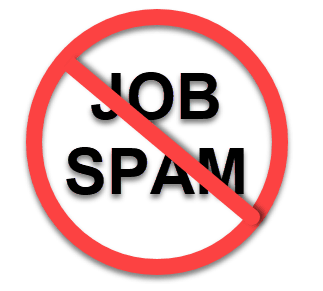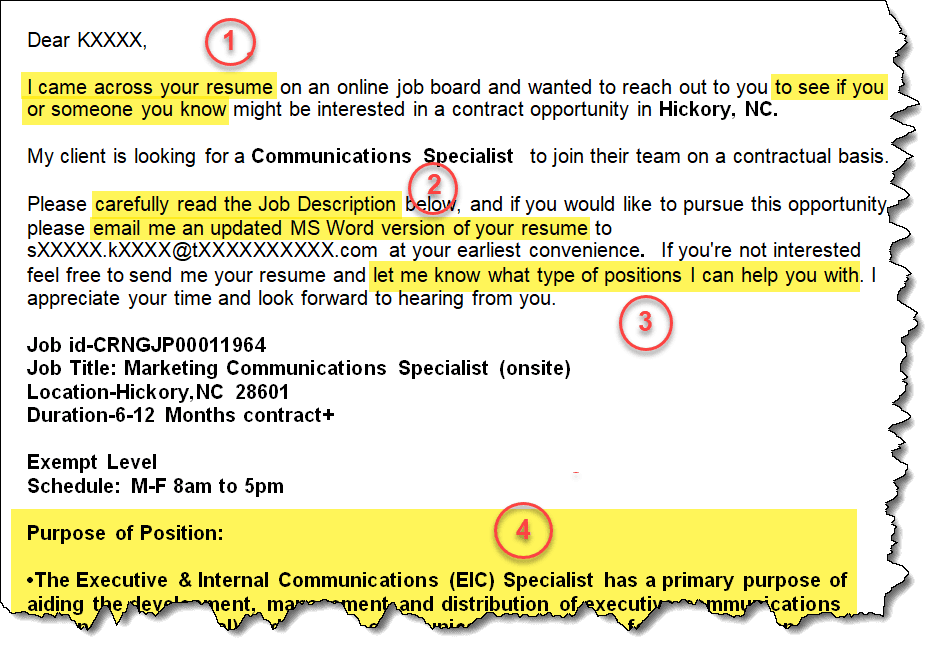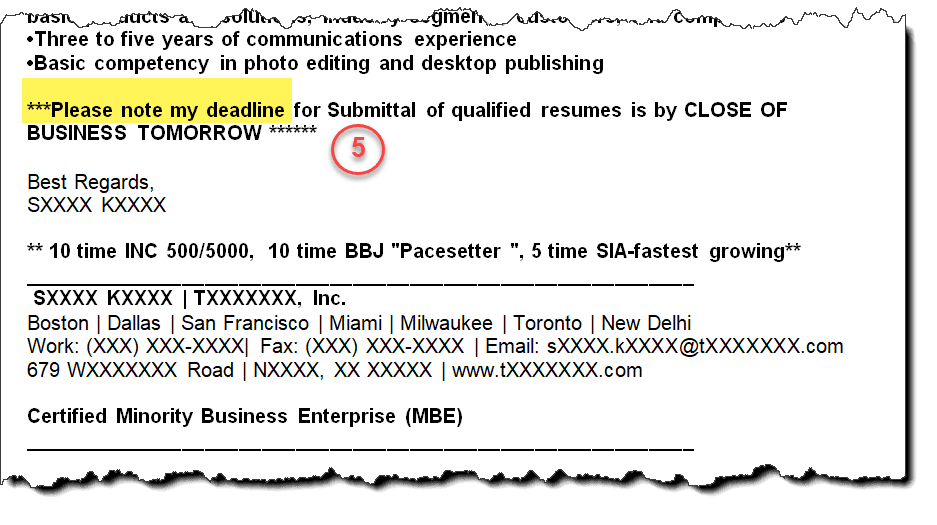In the July 18, 2017 Ask The Headhunter Newsletter, LinkedIn members reveal how they use the network to commit career suicide.
Question
Do you think LinkedIn has lost whatever promise it once had for people hoping participation would lead to job leads and better positions? Does it have any value now to the job seeker, or to the person seeking a better position than the one they currently have? Thank you for your thoughtful commentary.
 Nick’s Reply
Nick’s Reply
LinkedIn once showed promise as the leading professional network. Sadly, today it is at best merely an online directory. I think CEO Jeff Weiner sold out LinkedIn’s original mission when he first hired a boiler room of phone jockeys to sell “seats” to recruiters. This instantly turned LinkedIn into just another job board. The Microsoft acquisition seems to have had no meaningful impact on LinkedIn’s business model.
LinkedIn sells dope to dopes
When it told members to upload their contacts and tacitly encouraged them to connect to every connection of everyone they knew, LinkedIn devalued all those professional relationships. In generating every meaningless “contact” possible, LinkedIn could claim that every person and employer could make every possible job match. All its members had to do was ask.
And ask they did — and ask they do. You and I get their requests every day.
LinkedIn turned the delicate matter of approaching the right employer about the right job into a game of roulette. Every spin through millions of “contacts” leads to a beggar’s banquet at the world’s biggest professional-data dumpster, where everyone gambles for scraps.
Job search as gambling addiction is now the preferred way to commit career suicide. While publishing “career content” that urges members to make only quality connections (wink, wink), LinkedIn’s system facilitates and speeds up random, stupid, embarrassing and potentially self-destructive begging for jobs.
LinkedIn’s connection engine — LinkedIn messaging — is the new mail merge. It makes otherwise intelligent, capable, respectful people look like idiots. LinkedIn sells dope to people it turns into dopes. Every time I get a LinkedIn message announcing that someone I don’t know wants me to read their profile and lead them to “an opportunity,” I want to connect them to an addiction clinic. They’re not looking for jobs — they’re avoiding talking to employers.
Do you know what you look like?
Long ago, most LinkedIn users stopped being selective about accepting connection requests (see Join My LinkedIn Gang-Bang) because more connections meant higher status. Now the value of your n-th connection is probably zero. LinkedIn is a useful research tool, but forget about it as a networking tool. Look up people you want to do business with, but make contact with them the old fashioned way: through trusted referrals that actually know you. That still works best.
A person panhandling on a city street corner knows what they look like. Does this LinkedIn member who contacted me through LinkedIn Messenger know what he looks like?
Nick, My name is [Name]. I am looking for a position in healthcare. Do you know of/have any openings? Thank you.
He looks desperate and clueless — lost in the job market. Why would I recommend or hire someone who doesn’t know how to approach the right employer? Why would I want a healthcare worker who gambles with his reputation? Why would I want him working with my patients or customers?
Job panhandling
Let’s take a look at some of the panhandling requests I get via LinkedIn from people I don’t know who don’t know me. I don’t respond to most of these, but I sometimes fantasize about the snarky replies I’d send them.
Hello Nick, I’m currently looking for a full time job as an analyst or client/project manager. Please take a look at my professional and education background on my LinkedIn page. Kindly consider my application for any current or future employment opportunities. Looking forward to hearing from you. Thanks, [Name and cellphone number]
Nicks’ Snarky Reply
My responses to each sentence of that query, respectively:
- Who cares?
- How will looking at your LinkedIn page pay off for me?
- No.
- Don’t bother.
Hi Nick, I hope you’re well. I am interested in learning if we can work together. I am an MIT alum with 4 yrs experience running a startup in Silicon Valley, and am currently looking for a FT role (open to industries). Is this something you specialize in? Thank you. [Name and cellphone number]
Nick’s Snarky Reply
You went to MIT and you’re panhandling strangers for a job? Is this how you got your startup funding, by spamming venture capitalists? If you don’t know what I specialize in, why did you contact me?
Hello Nick, Thank you for Linking. I am currently seeking the next chapter of my 20-year marketing career. Throughout my career, I have established a reputation as a leader who is driven by challenge, undeterred by obstacles, and committed to furthering standards of excellence. My expertise encompasses business development and marketing administration, from controlling costs and maximizing revenues to harnessing team strengths to improve brand awareness, client service, and project performance. Further, my ability to build consensus among executive teams and stakeholders to promote transparency and influence positive change has been repeatedly proven. I have attached my resume for review and am excited about this next chapter of my career and hearing about any new opportunities that are out there. Sincerely, [Name and telephone number]
Nick’s Snarky Reply
You work in marketing and you can’t write a note that instantly makes me want to call you? You want to hear about “any” opportunity? Paint my house.
Hi Nick, hope you doing great. we specialize in IT consulting and provide manpower ,if you have any open position you can contact me on [telephone number] or email me your requirement details at [e-mail address]. Regards, [Name] Business development Executive [Company]
Nick’s Snarky Reply
How’d you sneak in among job seekers? You specialize in IT consulting? Everybody specializes in IT consulting! Do you paint houses?
Nick, do you headhunt now? I need a job! Sorry to be so dense. I could really use someone to help me get my next great job in the greater NYC area. Thanks so much! [Name]
Nick’s Actual Reply
Please check these two articles:
Headhunters find people, not jobs
They’re not headhunters
You have a common misconception. It doesn’t matter how much you need a job. The best headhunters will not help you find a job. They focus on the assignments their client companies give them — and they go looking for the people their clients need.
Do not rely on headhunters in any way. If one finds you, great — but that’s like counting on lottery winnings to pay your mortgage.
Hi Nick, Thanks for connect. I am looking for Job change, would you dont mind to help me with relevant job opening matching my current job role pls. Currently working with [Company] as Sr Manager content/ OTT domain responsible for EMEA and India markets distribution across digital channels, formats & screens, managing annual revenue portfolio of $ 10 MN. Shall remain at your disposal. Regards, [Name]
Nick’s Snarky Reply
Yes, you shall remain in my disposal! Regards!
How to search for a job
You search for a job by identifying companies that make products or deliver services you’d like to work on. (See Pursue Companies, Not Jobs.) Then you figure out — figure out — what problems and challenges those companies face in running their business.
Most important, you carefully and thoughtfully pick a handful of your skills that you could apply to those problems and challenges, and you prepare a brief business plan showing how you’d use those skills to make the business more successful.
(Note that this does not involve reading job postings.)
Then you hang out with people who have business with the company, for as long as it takes to make friends with them, until they get to know you well enough that they’re happy to refer and recommend you personally to the manager whose department you could clearly help.
That’s how you connect with a job. You don’t ask someone else to do the work. Because they won’t.
How to commit career suicide
When you hang out on an online street corner (LinkedIn is just a street corner), throwing handbills (your profile) at passersby you don’t know who don’t know you — and expect one of them might take you by the hand and lead you to a good, well-paying job — you commit career suicide.
When people in your line of work recognize you on that street corner — or meet you later — they realize you’re undisciplined, lost, thoughtless, and incapable of demonstrating your value to the handful of employers that would really benefit from working with you.
I want to ask those who sent me the above requests, did you calculate what happens when all of my (or anyone’s) LinkedIn contacts send such queries to all their connections? LinkedIn makes money! But you kill your career. Your blind solicitations make you a dead man walking.
It’s embarrassing. Begging opportunities from people you don’t know that don’t know you reveals that your judgment stinks. Playing LinkedIn job roulette is a sign that you’re addicted to gambling. And people who gamble are bad risks in anyone’s business — or professional circle.
What kinds of LinkedIn solicitations do you get from people you don’t really know? Is LinkedIn a job hunting tool? Or an excuse for not job hunting?
ADDENDUM
In the comments section below, reader Cynthia Wharton, a headhunter, explains better than I have how LinkedIn has become the career suicide game de rigeur. When they use the tools LinkedIn conveniently provides to easily spam all of kingdom come with “requests” for job leads and introductions to employers, users kill any interest a good headhunter or employer might have in them.
Says Wharton:
I steer a wide birth away from Linked In candidates and resort to what I do best, headhunting the perfect fit via my own network and other avenues that have been successful in my career.
She steers away because over-exposed LinkedIn candidates appear desperate and undesirable:
…candidates have over saturated their resumes out via Linked In and I cannot consider them if they have already sent their details to the employer I have in mind for them…
And it’s not only headhunters who don’t want sloppy seconds. Wharton notes that employers steer away, too:
I am finding many of the companies I do placements for, have indicated they are exceptionally frustrated by the daily inundation of unsolicited applicants. I’ve had several tell me that when they see a resume come in from the site, they instantly drag it into their trash folder. They know full well that every one of their industry competitors more than likely also has it as well. Why would they hire someone who may be constantly contacted by other employers?
That’s what I mean when I suggest LinkedIn is a game of career suicide. Thanks to Wharton for explaining it better than I did. Please read the rest of her comments below.
: :



 Question
Question


 Nick’s Reply
Nick’s Reply This has always been a hot topic, mainly because employers just won’t stop asking for information that’s none of their business. Even if HR managers swear up and down that they need your salary data “because that’s our policy,” we all know why they really want it: It gives them an edge on job offer negotiations.
This has always been a hot topic, mainly because employers just won’t stop asking for information that’s none of their business. Even if HR managers swear up and down that they need your salary data “because that’s our policy,” we all know why they really want it: It gives them an edge on job offer negotiations.